Labour Party MEP Alfred Sant believes that the removal of Police Commissioner Lawrence Cutajar and the Attorney General Peter Grech will solve nothing and would only serve to destabilise an ongoing investigation.
In an interview with The Malta Independent, Sant gives his honest reaction to the death of Daphne Caruana Galizia, which shook Malta, Europe and the world. He insists that the PN and Civil Society have overreacted when asking for the AG, Commissioner of Police and even the Prime Minister to resign. “Rehashing the failed partisan mantras of the last election campaign is what is least needed at present,” he said in the interview.
Sant also does not agree on the proposal to have the Commissioner and AG chosen through a two-thirds parliament majority. He said that this would bring the country to a stalemate as the two sides will never agree on appointing one person.
He also says it is high time that the functions of the Attorney General are split in two: the functions of a legal advisor to government, and those of an independent agent who activates prosecutions – with both roles retaining constitutional significance.
The MEP and book author said that the Prime Minister did well in advising caution. ‘The knee jerk reaction of certain quarters of our society to immediately polarise and politicise the whole tragedy must have made prudence and caution appear to be the greater virtues.’
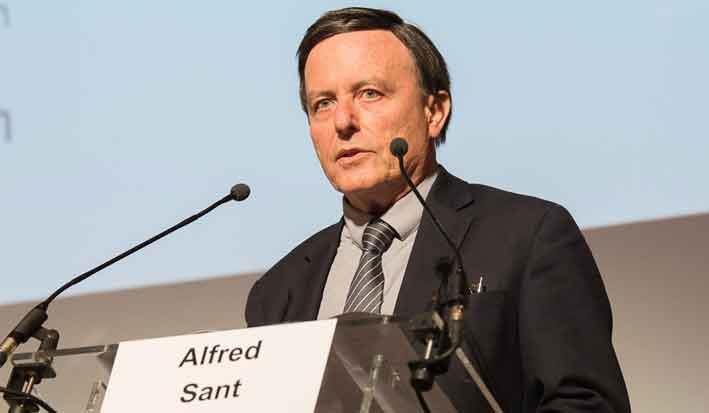
Full interview below:
The country is at a cross roads. How will the Daphne Caruana Galizia murder affect the country in the coming years?
That depends on whether the assassins are caught or not. Unfortunately the past record for cases of this sort is not good. Not knowing how and why this horrible murder happened and who did it, could simply stoke resentment and mistrust among people, and mobilise partisan struggle. It happened with the Karen Grech and Raymond Caruana murders, back in the seventies and eighties, and almost did later on with the murder attempt on then PM Fenech Adami’s secretary Richard Cachia Caruana.
I hope there will continue to be a deep and widespread acceptance in our country of the need to safeguard and protect the liberty of expression in society as a fundamental value.
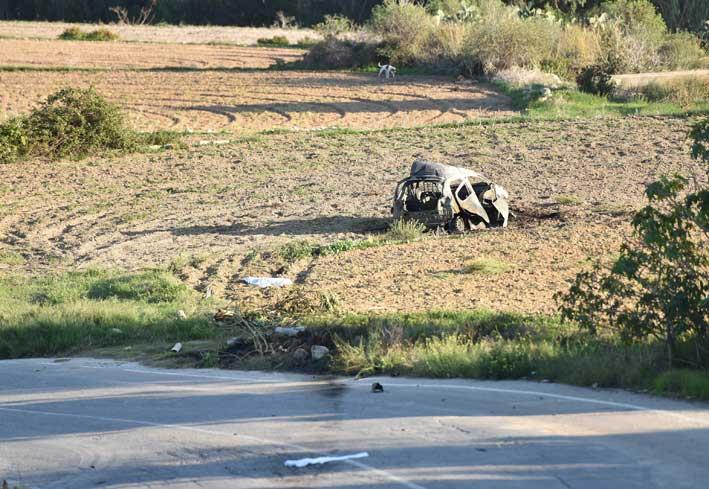
What affect will it have on the current Labour Administration?
The administration will have to be more cautious and proactive about security aspects covering the national system. Maltese society has become extremely open to external pressures of all sorts, at the same time that it is experiencing a tremendous surge of economic growth, based on tourism, financial services and internet gaming. This is opening new fractures in our population as the urge to make a quick buck opens up wide spaces where criminality (white collar and other) can flourish. Our national security apparatus needs continuous updating. Yet we spend significantly less than the EU average on public order and safety, and on police services.
What would you have done differently had this happened under your leadership?
Nothing much. What I found a bit slow was the communications side, which is unusual for this government. But then caution probably became the order of the day given the enormity of the crime and the shock among one and all that it caused. Also the knee jerk reaction of certain quarters of our society to immediately polarise and politicise the whole tragedy must have made prudence and caution appear to be the greater virtues.
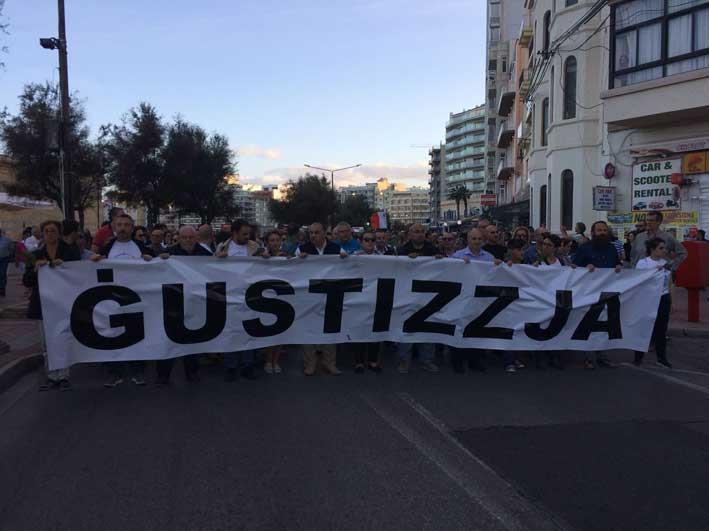
The PN and the Civil Society Network have called on the removal of the Police Commissioner and the AG. Do you agree?
Not at all. “Removing” the PC and AG would be meaningless and solve nothing. It would only serve to destabilize the ongoing investigation into the murder when the priority should be to focus all resources on getting that inquiry to run forward on all engines. Rehashing the failed partisan mantras of the last election campaign is what is least needed at present.
PN went a step further and wants the Prime Minister to step down. What is your view on such a reaction by the Opposition?
Obviously the Opposition has every right to present the political assessment it thinks relevant to the situation and useful as of now. Personally, I think the reaction is over the top. Again the effect of the scenario it suggests would amount to a huge political distraction which would undermine the ongoing investigations. I do not believe that this is what the Opposition wants, even if they are playing into the hands of those among them who would like to think the June election never happened, while they should be asking themselves why it turned out the way it did. There is no reason at all why the PM should even consider resigning.
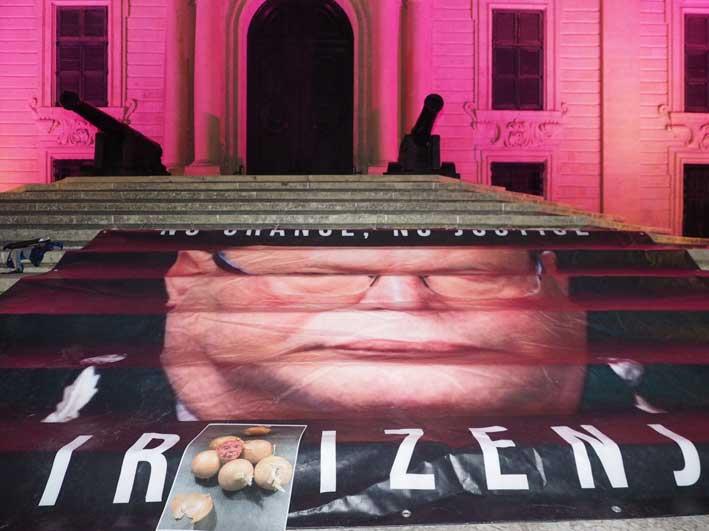
One of the main proposals being put forward by PN and Civil Society is that the Police Commissioner and AG are chosen with a two-thirds majority. Do you agree?
Again definitely not. Given the way things happen in this country, that would very likely lead to a stalemate, with the two sides in Parliament disagreeing on who to appoint. On the other hand, the best man for the job, when agreed on a two thirds basis, would probably rarely be the man/woman best suited for the job, as we have seen once already happening in the case of the Ombudsman.
Which does not mean that there is no need for change in the police force and the AG’s office.
On the former, back in 1996-1998, we had started radical organizational reforms based on a re-engineering of police tasks, to be later underpinned by new investment in policing facilities and infrastructure, as well as by an educational upgrade across the board for police personnel. The management side of that exercise was being run ably by David Spiteri Gingell and his consultancy team within the public service. It was a medium term approach that needed time to mature.
Institutionally, change was meanwhile going to be implemented via a new organic law to set out the functions and competences of the Malta Police, with the President of the Republic being given a titular role as head of all security forces. Naturally, that would have involved some oversight responsibilities on his/her part. The draft law was being prepared by Dr Joe Brincat, who did a very good job.
On the anti corruption front, a draft law was in the works to appoint a special judge with his/her own investigative powers and personnel to match, to deal with cases brought to his/her attention, as well as in an own-initiative mode. The approach met with the total opposition of the PN and its fellow travellers in the legal profession.
All this went in parallel with another effort to professionalise and streamline the army.
Post 1998, the overall programme was ditched by Fenech Adami administration.
In my view that approach remains relevant, even if politically it was and is difficult to implement since it clashes with established ways of doing things, partly derived from the practices of political, professional and personal clientelism.
Regarding the AG and his office, the time has long come for a split to be carried out: between the functions of a legal advisor to government, and those of an independent agent who activates prosecutions – with both roles retaining constitutional significance. I would not do it through agencies, which are supposed to increase transparency and accountability, but which in Malta have mostly served to enhance opacity and confuse responsibility for decison making.
How people are appointed can be less important than what they are appointed to; and it is just as important to ensure that the pools of available talent and commitment where potential appointees can be discovered are well nourished and professionally tried.
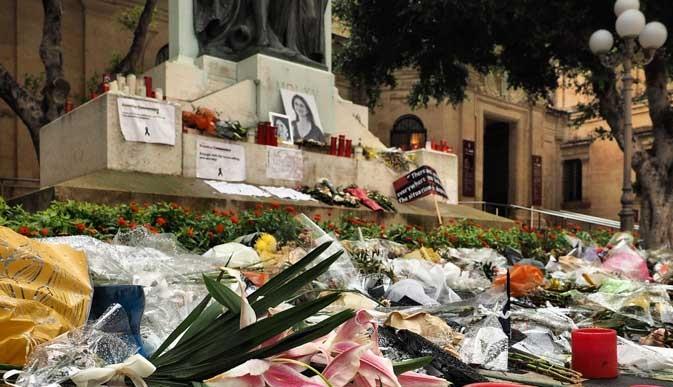
How would you describe Daphne Caruana Galizia?
A very good stylist. She had some very good stories, some bad, but I would agree with those who say her stories were not investigative. They were given to her by people who knew she would publish them because she had the guts to do so. On the other hand, except in the last few weeks, in the main, her record was that of one who only exposed Labour bashing stories. Pre-2008, she showed no interest in the corruption leads that were proliferating. Indeed, during the 2008 election campaign, she was a main player in the cover up of one story that was really incredible – the unspeakable manipulations by PN MP Jeffrey Pullicino Orland to turn Mistra bay into a huge commercial disco.
How is her death resonating in the corridors of the EU institutions?
Naturally, as happened in Malta, there was shock, incomprehension and anger. The murder was felt as an attack on liberty of expression. There were some MEPs in the European Parliament who have been active in denouncing Malta as a tax haven who made the link between this and the murder. It enabled them to continue to criticise the island as a place where the rule of law was being stretched or breaking down.
Within the European Parliament precincts this has been helpful to the largest group, the EPP (centre-right), for it was under attack during long months by the socialists and democrats plus other political families, for the tacit and other support it gives to one of its own national party members, that of Hungary, led by the outspoken Hungarian PM Orban. Political groups in the Parliament have accused Orban of undermining the rule of law in his country and typically, he has responded with tough language. So, having a member state governed by a socialist party which could be tarred with the same brush provides a great relief to the EPP.
MEPs with single issue concerns, such as about tax evasion, or with bees in their bonnets, including in the socialist group, have exacerbated the problem. On the basis of limited knowledge about how the island “works”, they feel empowered to comment against the Malta government and Maltese laws. To be fair, their state of mind is reinforced by claims that are recklessly being made by some Maltese in social and traditional media, for what I believe are partisan ends. These inevitably spill over into mainstream international fora. Their claims range from a total denunciation, largely rhetorical, of the Muscat administration, to assertions about malgovernance in the regulation of financial services and internet gaming, all to justify the argument that Malta is a Mafia state or whatever.
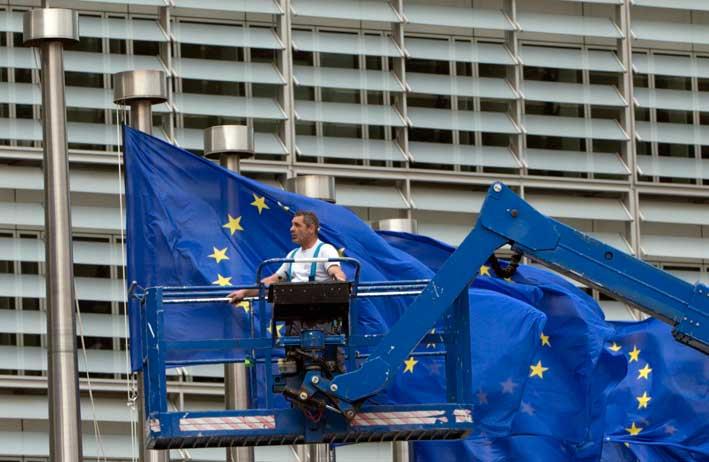
The damage that is being done is incredible. It reinforces the thesis of those who in the European Commission and Parliament argue against the practice of tax regimes that have allowed the development of financial services in Malta. It distorts the truth and heightens negative perceptions about Malta, along lines that well predate the Muscat administration and were solidly planted at the time of the Fenech Adami and Gonzi administrations, during which financial services and later e gaming took root.
It is all about a self-defeating exercise in national denigration that is being carried out from Malta, by Maltese people who project an image of Malta today as a Noriega style Panama, while airbrushing how under PN administrations, Malta’s image had been seriously compromised. Then there were: the assassination attempt on the PM’s private secretary, with the PM himself eventually discussing the matter with an alleged attacker at midnight under a St Julian’s bypass; a Chief Justice who was convicted of bribery and served time in jail; two PN cabinet ministers at least, who were discovereed to have consistently lied to Parliament and their PM about extensive funds they held abroad which while they served as ministers, they never declared, as they were bound to by law; a PN nominee serving as EU commissioner who rightly or wrongly, was dismissed on allegations of improper behaviour; allegations about an ex PN prime minister, his son, and an ex PN Finance minister who came into the limelight for having fronted companies which managed Ponzi schemes, covered for mafia money laundering, and ran insurance programmes that were underfunded and undermined the national laws of an EU member state. At no stage while all this was proceeding, were today’s accusers active to promote the thesis that Malta was being fed to the dogs.
Once again, some PN quarters – not all of them to be fair – have been adopting the option of la politique du pire. It’s a pity.
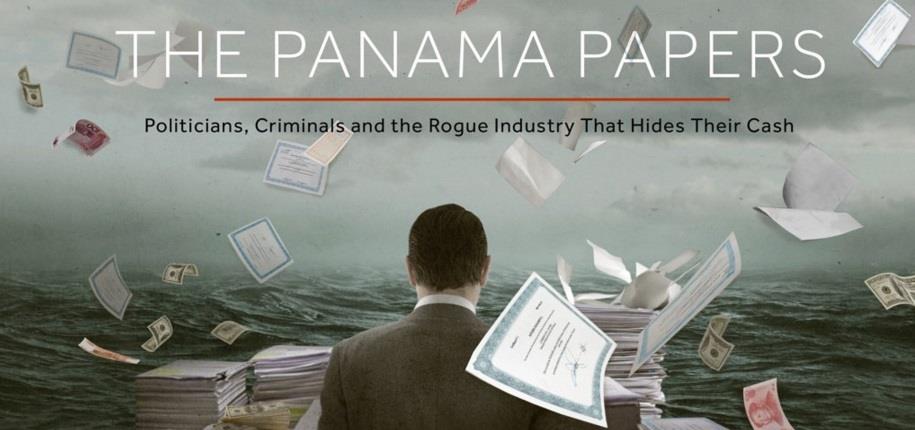
Do you agree with the way the international media is reacting to her death? How they describe Daphne as the Panama Papers journalist who uncovered major corruption?
The internatioal media are of course right to commemorate in a big way DCG’s murder. Professionals should honour those of their number who experience the ultimate sacrifice.
As you may have understood from what I had to say, I’m doubtful whether the Panama Papers actually defines DCG’s work. It’s of course very topical but very recent. Nor very rigorous.
The first time I came into contact with her was back in 1985 or 1986. Between 1987 and 2013, she uncovered little “major” corruption, if at all. The revelations she provided in later years were very one sided, fed by one side to undermine the other. Which is fair enough if that’s how one operates. I can understand that; there were occasions when I did it as well.
But beyond, what the international media had to say was much of it correct in so far as principles go, and one cannot but back it wholeheartedly. Much more questionable, vastly more, are the action details that seem to support the claims made by the international media for DCG’s work. However I would not want to make a polemic out of that.
You were never afraid to speak your mind even when you know that your statements might be controversial. Did you see this asset in Daphne as a journalist?
Of course. Being able to say controversial “things” in a small comunity like Malta can be considered as an asset. But then the question arises: do you do it for all and in all? And how do you do it?
I cannot claim to have always done it, perhaps not even mostly. Nor did DCG do it, no matter what those who preach her sainthood on this topic now say. She was selective like we all are, not just in Malta but everywhere. The sins of our friends are considered less scandalous sometimes than the almost honest practices of our adversaries. It’s a fact of life in Malta, just like it’s a fact of life in Trump’s America, Putin’s Russia, and Macron’s France.
Then there’s the matter of how you speak your mind. One big irony in recent weeks was how former GWU secretary general Tony Zarb was pilloried for his facebook description of the ladies camping outside Castille to protest (?) the DCG assassination. I disagree with his assessment but frankly, he was well in line with how DCG used to express herself about people, so long as they stood on the other side of the political fence from hers – people whom she therefore viscerally disliked and had no compunction about attacking them no holds barred. She would have been just as virulent as Zarb, obviously more elegant in expression but certainly more vicious. Yet nobody mentioned this; nobody said TZ had every right to write what he wrote, like DCG had every right to write what she wrote, by way of revelation, declamation or sheer malavoglia. Two weights, two measures, in this as well.